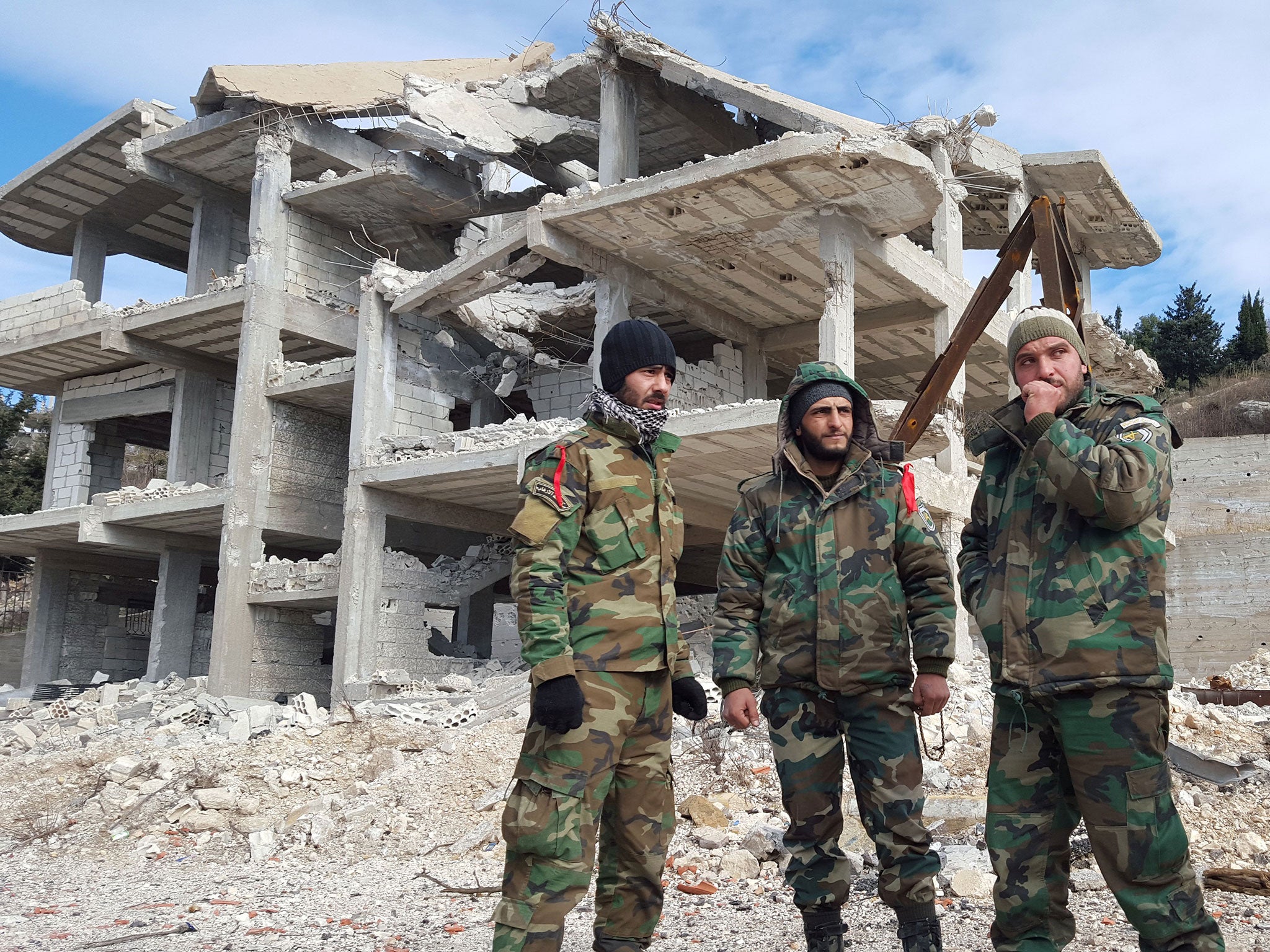Syria ceasefire: Putin vows to put pressure on Assad regime as date for US-Russia brokered deal is confirmed
Putin says the ceasefire for Syria agreed with the US is a 'real step forward that can stop the bloodshed'

A planned ceasefire to end the bloodshed in Syria will come in to effect on 27 February, the US and Russia have announced.
Vladimir Putin hailed the agreement with optimism, describing it as a "real step forward that can stop the bloodshed", and saying Moscow would use its influence on President Bashar al-Assad to try make sure it is observed.
"We will do whatever is necessary with Damascus, with the legitimate Syrian authorities," the Russian President said during a televised address, AFP reports.
In a statement, the White House said Mr Putin and Barack Obama had discussed the deal over the phone. The US said Mr Obama remained committed to "the shared goal of degrading and ultimately destroying Isis", which is not covered by the ceasefire.
It said the truce will apply “to those parties to the Syrian conflict that have indicated their commitment to and acceptance of its terms.”
This does not include Isis, the al-Qaeda-linked Nusra Front and "other terrorist organisations designated by the UN".
Air strikes by Syria, Russia and the US-led coalition against these groups would continue, according to the statement.
It said armed opposition groups taking part would have to confirm their involvement on 26 February.
The deal also sets up a communications hotline and calls for a working group to monitor ceasefire violations. Violations are to be addressed by the working group with an eye toward restoring compliance and cooling tensions.
The deal also calls for "non-forcible means" to be exhausted before other means are pursued for punishing transgressors.
US Secretary of State John Kerry welcomed the deal, saying: “If implemented and adhered to, this cessation will not only lead to a decline in violence, but also continue to expand the delivery of urgently needed humanitarian supplies to besieged areas."
UN Secretary General Ban Ki-moon also praised the agreement, saying: "Above all, it is a long-awaited signal of hope to the Syrian people that after five years of conflict there may be an end to their suffering in sight."
Speaking to Reuters, Syrian opposition leaders said they were downbeat about the chances of success for the ceasefire.
Bashar al-Zoubi, head of the political office of the Yarmouk Army, a Free Syrian Army group, said he expected Damascus and its Russian allies to continue to attack opposition-held territory on the pretext of fighting the Nusra Front.
"Russia and the regime will target the areas of the revolutionaries on the pretext of the Nusra Front's presence, and you know how mixed those areas are, and if this happens, the truce will collapse," he said.
On 12 February a caesefire was agreed by world powers to come in to effect within a week, but that deadline passed and violence continued.
On Sunday 140 people died in bombings in Homs and Damascus.
More than 250,000 Syrians are believed to have been killed in the conflict since it began in March 2011.
Additional reporting by various agencies
Join our commenting forum
Join thought-provoking conversations, follow other Independent readers and see their replies
Comments